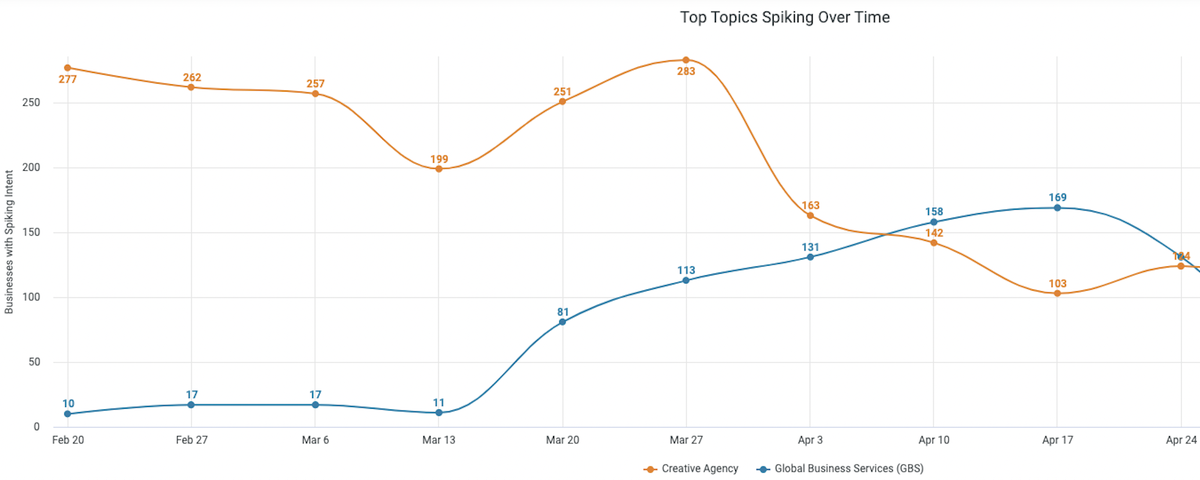
Ad industry take heed: The market
is sending disruptive intent signals for creative agencies.
Meanwhile, big brands also are researching "global business services" in big numbers, suggesting some big changes may be imminent.
Data from Bombora Company Surge reveals that both brands and agencies are conducting in-depth research on these topics, indicating their intent to act soon.
Using
creative thinking to transform entire businesses is not new. It’s the fundamental notion advertising has been built on. As ad legend Bill Bernbach of Doyle Dane Bernbach (DDB) once said,
“Properly practiced creativity must result in greater sales more economically achieved. Properly practiced creativity can lift your claims out of the swamp of sameness and make them accepted,
believed, persuasive, urgent.”
advertisement
advertisement
In today’s business landscape everything is interconnected, making it impossible to separate the realities of user experience from employee
experience, or employee experience from customer experience. Marketers now approach their jobs with the total experience in mind, and a bigger toolkit in tow.
The Cannes Lions
Festival of Creativity -- what many consider to be the pinnacle of the creative awards season -- has even formalized new categories in recent years acknowledging this shift, including the "Creative
Business Transformation Lions," "Creative Commerce Lions" and "Creative B2B Lions," the latter of which I’m lucky to be a part of.
We know quite well that the pandemic
accelerated digital commerce worldwide, accelerating digital transformation. Across the world, companies of all sizes and in all sub-sectors are changing how they go to market, driven by demand from
customers.
Businesses that once mapped their digital strategy in one- to three-year phases, now have to scale in a matter of weeks or months.
Furthermore, with
Google’s phaseout of third-party cookie tracking by end of 2023, marketers may soon need to rethink their digital advertising strategies once more.
With a wider remit than in
year’s past, marketers understand that customer engagement doesn’t end once a transaction takes place. In a digital-first world, personalization and contextual messaging at scale is
increasingly becoming the norm. However, one bad experience with a brand can risk losing the trust of a customer so the stakes are higher than they’ve ever been.
We know
that trust and loyalty are the building blocks of a solid customer relationship. And trust often equals customer retention, so the responsibility is on marketers and revenue teams to stay ahead of the
curve by planning for shifts in customer thinking and offering creative strategies required to stay relevant and impactful.
Lets's not forget Bernbach also said, “a great ad
campaign will make a product fail faster.”
As we reconsider the role of marketing within the organization at large, there is a huge opportunity for ingenuity that leads to the creation
of new products and services, and the reinvention of operations and total experience in companies of all sizes to drive change.